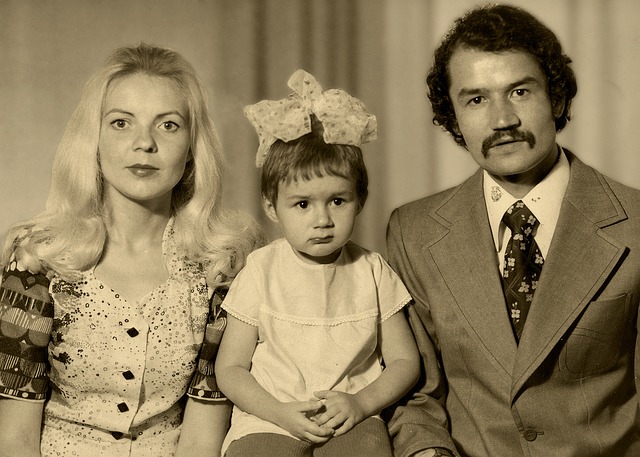Co-parenting disputes arise from a complex mix of emotional, legal, and logistical factors like differing parenting schedules and custody arrangements. Triggers vary from minor disagreements to severe allegations of parental alienation. These conflicts are challenging when both parents are emotionally attached and believe they know what's best for the child. Key issues include parental rights, responsibilities, and parenting time. Co-parenting mediation or a co-parenting lawyer can help navigate these challenges, ensuring guidance and a cooperative environment for the child's upbringing. A qualified co-parenting lawyer is invaluable for complex disputes, providing legal expertise in creating tailored co-parenting plans, preserving parental rights, and minimizing conflicts. Co-parenting mediation offers a collaborative approach to resolve disagreements without court action, promoting understanding and mutual respect. An experienced co-parenting lawyer is crucial for successful shared custody arrangements, ensuring compliance with legal requirements and prioritizing the child's best interests.
Co-parenting disputes can arise from complex emotional and logistical challenges, often affecting the well-being of children. Understanding these conflicts, whether centered around parental alienation or scheduling parenting time, is crucial for finding effective resolutions. This article guides you through various aspects of managing co-parenting disputes, from recognizing common triggers to exploring legal avenues and alternative dispute resolution methods like mediation. Learn how a co-parenting lawyer can facilitate a successful co-parenting plan, ensuring parental rights and shared custody while minimizing conflict. Discover the benefits of co-parenting mediation as a constructive approach to resolve parenting conflicts and build a supportive environment for your family’s future.
- Understanding Co-parenting Disputes: Common Issues and Triggers
- The Role of a Co-parenting Lawyer in Navigating Legal Aspects
- Alternative Dispute Resolution: Mediation and Its Benefits
- Building a Successful Co-parenting Plan: Ensuring Parental Rights and Shared Custody
Understanding Co-parenting Disputes: Common Issues and Triggers

Co-parenting disputes often arise from a complex interplay of emotional, legal, and logistical factors. Common issues include disagreements over parenting time, the implementation of a co-parenting plan, and conflicts related to shared custody arrangements. Triggers can be as simple as differing opinions on daily routines or as complex as allegations of parental alienation. These disputes can be particularly challenging when both parents are emotionally invested and want what they believe is best for the child.
Parental rights and responsibilities are at the heart of these conflicts, with each parent advocating for their role in the child’s life. Parenting time, also known as visitation rights, is a critical area where disputes can surface. Co-parenting mediation or the involvement of a co-parenting lawyer can help navigate these challenges, ensuring that both parents have access to guidance and support while fostering a cooperative environment for raising their child. Effective communication, clear legal advice, and a focus on the child’s best interests are essential in resolving such disputes amicably.
The Role of a Co-parenting Lawyer in Navigating Legal Aspects

When faced with parental disputes, involving issues like parental alienation or disagreements over a co-parenting plan, seeking expert legal support from a qualified co-parenting lawyer is essential. These attorneys specialize in navigating the complex legal aspects of co-parenting, ensuring that both parents’ rights and the best interests of the child are protected. A co-parenting lawyer can help create and implement a comprehensive co-parenting plan that outlines parenting time, shared custody arrangements, and decision-making processes, reducing the risk of future conflicts.
These legal professionals also offer valuable guidance on parental rights and responsibilities, helping parents understand their entitlements while fostering healthy communication between them. In cases where mediation fails or when there’s a need for legal enforcement, these attorneys can represent their clients in court, advocating for fair outcomes in parenting time, child support, and other related matters. They play a crucial role in resolving parental conflicts, ensuring stability and minimizing the negative impact on the child.
Alternative Dispute Resolution: Mediation and Its Benefits

In many cases, resolving co-parenting disputes doesn’t require a courtroom battle. Alternative Dispute Resolution (ADR), particularly mediation, offers a more collaborative and effective approach to addressing parenting conflicts. A co-parenting mediation involves a neutral third-party facilitator who helps both parents communicate, negotiate, and reach agreements on important issues like parental rights, parenting time, and the creation or modification of a co-parenting plan. This process benefits everyone involved by promoting understanding, maintaining shared custody, and minimizing the emotional toll often associated with legal disputes, especially in cases where parental alienation is a concern.
Unlike adversarial processes that can be lengthy and costly, mediation encourages cooperation and mutual respect. A co-parenting lawyer or mediator facilitates open dialogue, ensuring both parents have an opportunity to express their needs, fears, and desires. This method allows for tailored solutions that consider the best interests of the child(ren), fostering a healthier co-parenting relationship moving forward. It’s a powerful tool in the arsenal of any co-parenting support system, offering a chance to resolve disputes peacefully and with the ultimate goal of maintaining or improving the quality of life for all involved, especially the children.
Building a Successful Co-parenting Plan: Ensuring Parental Rights and Shared Custody

Creating a successful co-parenting plan is essential when aiming for a healthy and harmonious shared custody arrangement. This involves clear communication between both parents, as well as the guidance of an experienced co-parenting lawyer. The plan should detail parenting time, ensuring each parent retains their parental rights and has meaningful involvement in their child’s life. A well-structured co-parenting plan can prevent parental alienation—a harmful practice where one parent manipulates a child against the other—and promote a cooperative environment for both parents.
Co-parenting mediation is another valuable tool that can help resolve conflicts and foster a more amicable relationship between separated parents. Professional co-parenting support from an attorney specializing in family law ensures the plan complies with legal requirements, considers the best interests of the child, and offers parental guidance for navigating challenging situations. Shared custody arrangements, when effectively managed, can provide stability and maintain a strong bond between children and both their parents.
When co-parenting disputes arise, seeking expert help is crucial for a healthy and harmonious co-parenting relationship. By understanding the common triggers and legal aspects, parents can effectively navigate their situation with the support of a specialized co-parenting lawyer. These professionals guide them in creating a co-parenting plan that respects parental rights and ensures shared custody, fostering a cooperative environment for the well-being of the children. Co-parenting mediation offers an alternative dispute resolution method, promoting communication and mutual understanding. With the right support, parents can overcome conflicts, build a robust co-parenting framework, and provide their children with stable and loving environments.
